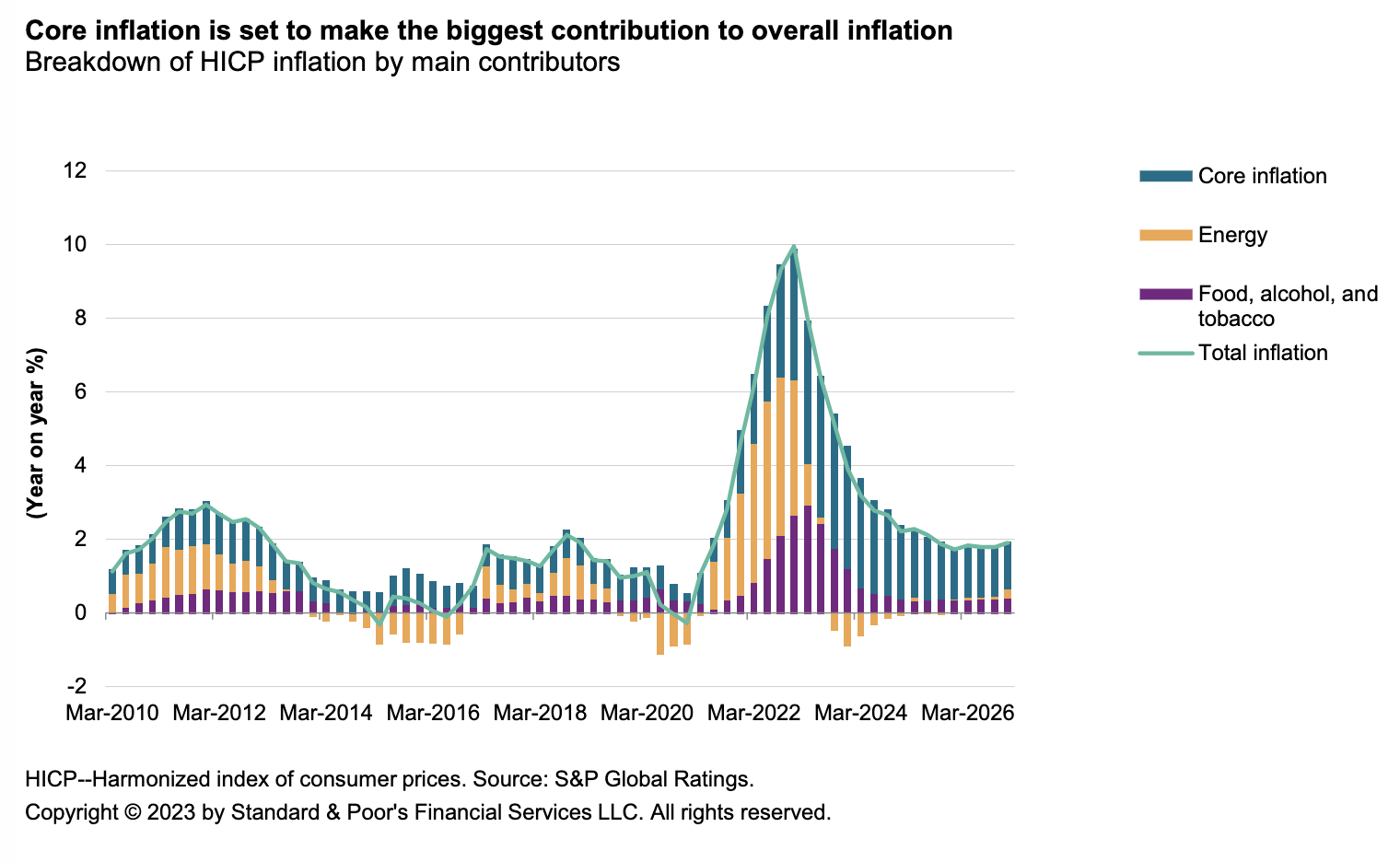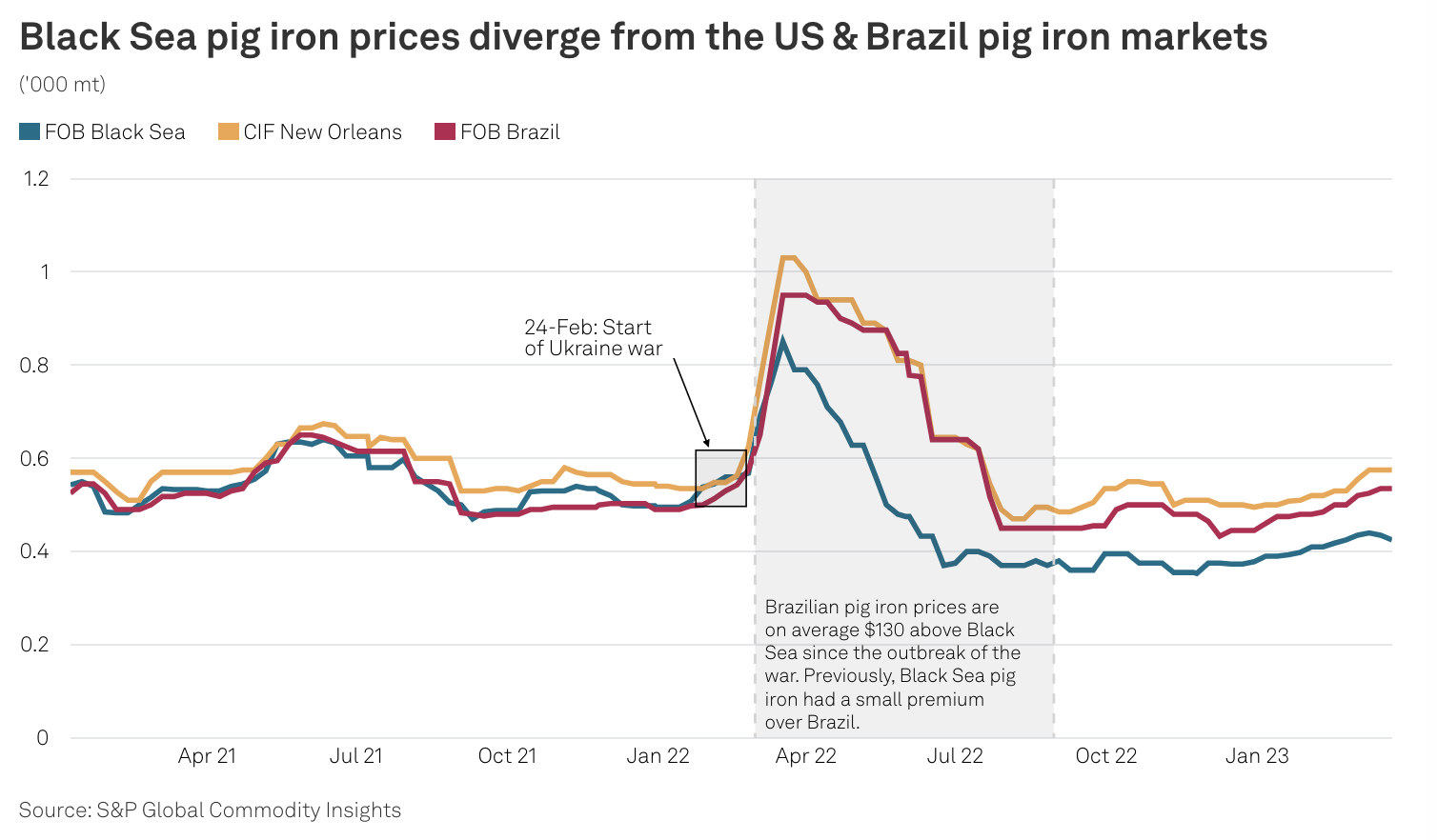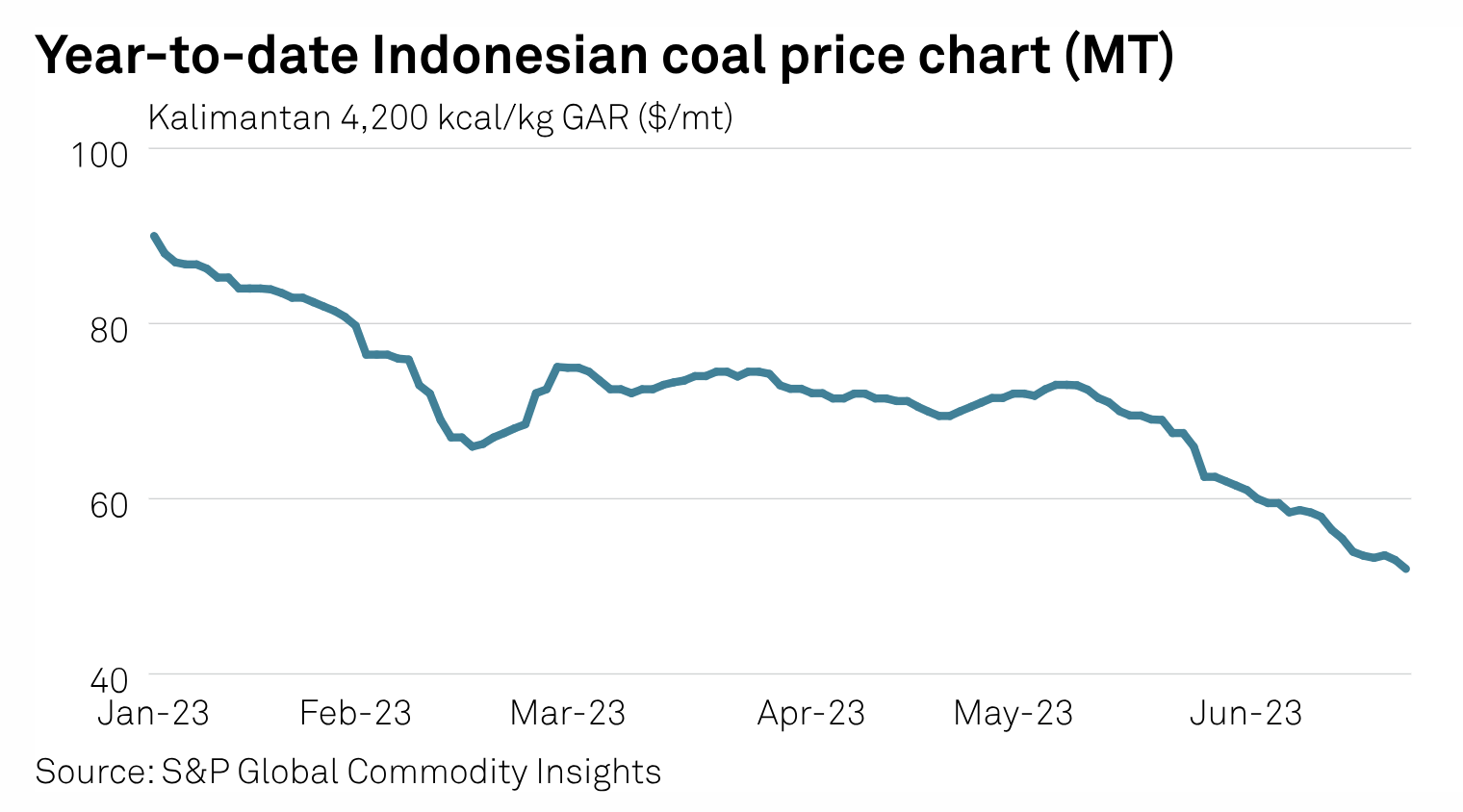Featured Topics
Featured Products
Events
S&P Global Offerings
Featured Topics
Featured Products
Events
S&P Global Offerings
Featured Topics
Featured Products
Events
S&P Global Offerings
Featured Topics
Featured Products
Events
Language
Featured Products
Ratings & Benchmarks
By Topic
Market Insights
About S&P Global
Corporate Responsibility
Culture & Engagement
Featured Products
Ratings & Benchmarks
By Topic
Market Insights
About S&P Global
Corporate Responsibility
Culture & Engagement
S&P Global — 27 Jun, 2023 — Global
By S&P Global
Start every business day with our analyses of the most pressing developments affecting markets today, alongside a curated selection of our latest and most important insights on the global economy.
Methane — Both a Problem and a Solution
Methane is an odorless, colorless gas produced through geological, biological and industrial processes. According to the International Energy Agency, methane is responsible for about 30% of the rise in global temperatures since the industrial revolution, despite methane emissions being orders of magnitude lower than carbon emissions. This is explained by the fact that methane has more than 80 times the warming power of carbon dioxide. Methane reduction has been a focus of climate scientists, with the UN launching a global methane detection system to monitor emissions at the 2022 UN Climate Change Conference. But a recent analysis by S&P Global Commodity Insights suggests that methane could also be a solution to the energy crisis.
Methane is the major ingredient in natural gas, which is a naturally occurring mixture of gaseous hydrocarbons, rather than a single gas with a single chemical structure. This means that when people talk about methane emissions from natural gas production and transport, methane is not a byproduct of natural gas. Instead, methane emissions are wastage — a part of natural gas that floats off into the atmosphere or is burnt off through flaring.
S&P Global Commodity Insights’ Senior Vice President, Head of Geopolitics and International Affairs Carlos Pascual and Vice President, Strategy Consulting Group Eleonor Kramarz view this wasted methane as a partial solution to the energy trilemma. The energy trilemma refers to a three-part problem for energy markets consisting of how to simultaneously achieve energy security, sustainability and affordability.
Looking at the case of Europe, Pascual and Kramarz identified a loss of 139 billion cubic meters of natural gas that used to be supplied to Europe from Russia. With alternative sources of natural gas maxed out and liquefied natural gas capacity still in development, Europe is paying four to five times more for natural gas than the US. However, 40% of methane emissions today come from the oil and gas sector. If those emissions could be captured and repurposed as natural gas, 80 Bcm per year of methane could be provided. According to the authors, the technology and political will to reduce methane emissions already exist. What is required is the assembly of all the pieces.
Recapturing 80 Bcm of wasted natural gas production would help to achieve energy security and affordability, but the greatest benefit would be for sustainability. Methane’s impact as a greenhouse gas is well understood. S&P Global Commodity Insights has been leading efforts to assess methane intensity through satellite data and to establish transparent pricing for methane capture. However, methane is produced by so many different sources that bottom-up approaches to emissions tend to underestimate the scale of the problem. The UN announced the Methane Alert and Response System at its 2022 conference in Egypt to "scale up global efforts to detect and act on major emissions sources in a transparent manner."
It is perhaps paradoxical that the solution to venting a damaging hydrocarbon into the atmosphere may be to burn that hydrocarbon for energy. But sometimes problems and solutions come in the same odorless, colorless form.
Today is Tuesday, June 27, 2023, and here is today’s essential intelligence.
Written by Nathan Hunt.
Economic Outlook Eurozone Q3 2023: Short-Term Pain, Medium-Term Gain

A robust labor market, fiscal measures' effects and the prospect of further rate rises lead S&P Global Ratings to amend its GDP forecasts for 2023 to 0.6% from 0.3%, while its forecasts for 2024 are marginally lowered. Disinflation should start to gain pace, although it doesn't see inflation returning to the central bank's 2% target until 2025. S&P Global Ratings expects the eurozone will emerge from stagflation in the second to third quarters, thanks to disinflation and the first normal tourist season since COVID-19. However, other post-pandemic tailwinds are fading, and higher interest rates are dampening demand.
—Read the report from S&P Global Ratings
Access more insights on the global economy >
Corporate China Hits A Turning Point On Leverage

China corporates' appetite for capital expenditure, M&A and debt raising will remain modest for the next three years, at least. This reflects moderating expectations about China's GDP gains and slowing productivity growth. Disciplined financial management will help China corporates deleverage. That said, the debt leverage will take years to return to pre-COVID levels, as slowing economic expansion will limit profit growth.
—Read the report from S&P Global Ratings
Access more insights on capital markets >
Game Changer: Ukraine War To Transform Global Pig Iron Trade For Years To Come

The Russian invasion in Ukraine sent shockwaves to most commodities markets worldwide. With Ukraine and Russia accounting for around 60% of global merchant pig iron exports, the war has been a complete game changer for the global pig iron trade. The Russia-Ukraine war that started on Feb. 24, 2022, has turned a large part of the bustling trading region of the Black Sea into a war zone. As a result of Russia's direct attacks, blockages or occupation, the Ukrainian Black Sea and Sea of Azov ports, including Odesa, Chornomorsk, Yuzhny and Mariupol, became unavailable for Ukrainian companies to use for trade. This had particularly negative consequences on the Ukrainian steel industry, which traditionally exported most of its output mainly via Black Sea ports.
—Read the article from S&P Global Commodity Insights
Access more insights on global trade >
Listen: How The Canadian Wildfires Impact Business, Net-Zero, Health
Earlier in June 2023, a series of wildfires across Quebec, Canada blanketed eastern North America in smoke. This episode of the ESG Insider podcast features three scientists about how climate change is exacerbating hazards like these wildfires, and to understand how an event like this impacts health, business and the economy.
—Listen and subscribe to ESG Insider, a podcast from S&P Global Sustainable1
Access more insights on sustainability >
China's Coal Phase Out Plan Still Unclear Amid Ample Reserves: Oxford Institute

China's coal consumption is set to fall but the pace at which it will phase out coal is unclear amid a colossal surge in energy demand on the back of rapid economic growth, according to a research paper published at the Oxford Institute for Energy Studies June 25. With abundant local reserves, coal offers China flexibility in its energy supplies and a significant hedge against energy insecurity, even as its use undermines emission reduction targets, the paper published by Michal Meidan, head of China energy research, noted.
—Read the article from S&P Global Commodity Insights
Access more insights on energy and commodities >
Listen: Next In Tech | Episode 121: What Is Zero Trust?
The idea of zero trust in security is many years old but seems to evade clear definition. Returning guests Dan Kennedy and Garrett Bekker join host Eric Hanselman to discuss the various tenets of zero trust and look into issues with implementation. There’s strong desire to get to a zero trust footing, but a lot of hurdles to clear in the journey. A U.S. executive order has added pressure, but delivering reasonable user experiences is complicated by limited support and legacy technologies.
—Listen and subscribe to Next in Tech, a podcast from S&P Global Market Intelligence
Content Type
Location
Segment
Language
